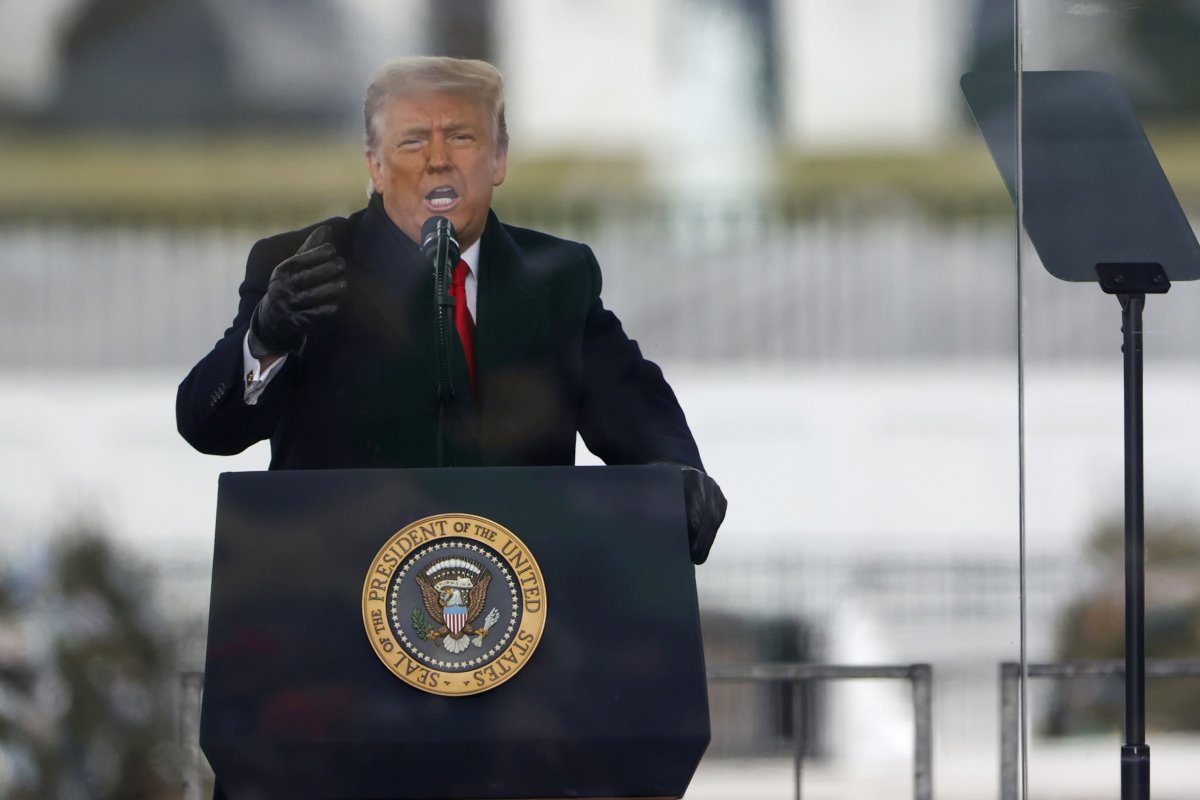More than 700 pages of "hidden" documents that could shed light on the January 6 attack are set to be handed to Congress after the Supreme Court rejected Donald Trump's bid to have their release blocked.
In a crushing blow to the former president, the court denied his request to halt the transfer of the documents from the National Archives to the House select committee investigating the Capitol riot.
Just hours after the court's ruling removed the final legal obstacle, hundreds of pages were already being handed over, The New York Times reported.
The documents that are set to be released include Trump's presidential diaries, logs of phone calls and handwritten notes from top aides including his chief of staff Mark Meadows.
In a tweet after the ruling, the January 6 Committee said: "The Supreme Court's action tonight is a victory for the rule of law & American democracy.
"The Select Committee has already begun to receive records that the former President had hoped to keep hidden & we look forward to additional productions regarding this important information."
The National Archives previously revealed that Trump was also seeking to block the release of "multiple binders of the former press secretary [Kayleigh McEnany] which is made up almost entirely of talking points and statements related to the 2020 election."
The trove of documents also includes:
- The draft text of a presidential speech for the "Save America" march on January 6
- A handwritten list of potential or scheduled briefings and telephone calls concerning election issues
- A "draft Executive Order concerning election integrity"
- A draft proclamation honoring Capitol Police officers Brian Sicknick and Howard Liebengood, who were at the scene and died days after the riot.
Trump had spent months attempting to prevent the release, citing executive privilege.
In its ruling, the Supreme Court said it did not need to rule on whether a former president could invoke executive privilege in such a way because a lower court had already done so.
"Because the Court of Appeals concluded that President Trump's claims would have failed even if he were the incumbent, his status as a former President necessarily made no difference to the court's decision," the court said.
In order for a former president to assert executive privilege over his archived White House records, the incumbent president would also have to allow it.
President Joe Biden had already declined to invoke executive privilege over the January 6 documents, saying this would not be in the "best interests of the United States, and therefore is not justified."
In a joint statement following the Supreme Court ruling, the chair of the select committee, Rep. Bennie Thompson (D-MS), and its vice chair, Rep. Liz Cheney (R-WY), said: "Our work goes forward to uncover all the facts about the violence of January 6th and its causes.
"We will not be deterred in our effort to get answers, make legislative recommendations to strengthen our democracy, and help ensure nothing like that day ever happens again."
House Speaker Nancy Pelosi described the ruling as a "victory for the truth, for the rule of law and for the American people."
She added: "As the courts have again and again affirmed, no one is above the law—not even a former president, who incited the January 6th insurrection.
"Reviewing documents that former President Trump sought to hide from the American people is essential to understanding the events leading up to and during the deadly insurrection and its aftermath, and to ensuring it never happens again."
Newsweek has contacted the former president's office for comment.

Uncommon Knowledge
Newsweek is committed to challenging conventional wisdom and finding connections in the search for common ground.
Newsweek is committed to challenging conventional wisdom and finding connections in the search for common ground.
About the writer
Ewan Palmer is a Newsweek News Reporter based in London, U.K. His focus is reporting on US politics, domestic policy ... Read more
To read how Newsweek uses AI as a newsroom tool, Click here.








